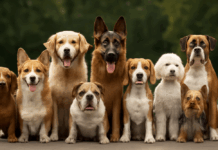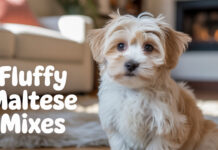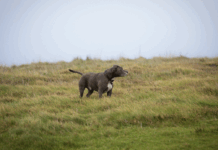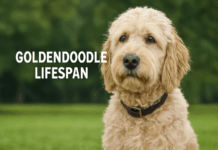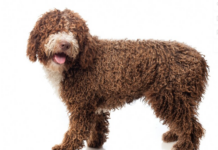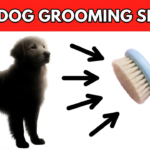Last Updated on August 2, 2024 by Dogs Vets
The Abruzzese Mastiff, a large dog with fluffy, light-colored fur, is an ancient breed originating from Italy’s Abruzzo and Maremma regions. Known for its intelligence, hardworking nature, and affectionate temperament, this breed remains rare outside its native land.
In this guide, we will explore everything you need to know about the Abruzzese Mastiff, including its characteristics, temperament, diet, exercise needs, health, training, and grooming.
Characteristics of the Abruzzese Mastiff
Height: 23.5–29.5 inches
Weight: 65–100 pounds
Lifespan: 11–13 years
Colors: White, ivory, lemon, or orange
Suitable for: Active families, families with children, experienced dog owners, multi-pet households
Temperament: Intelligent, hardworking, and affectionate
Temperament and Intelligence
The Abruzzese Mastiff is known for its even-keeled and docile nature. As a breed developed to guard livestock, it is both protective and loyal. These dogs are hardworking and enjoy having a job to do. They are exceptional team players, often working in groups to protect livestock from predators. Despite their imposing size, Abruzzese Mastiffs are friendly, devoted, and courageous.
Family Compatibility
The protective nature of the Abruzzese Mastiff extends to its human family. They make excellent guard dogs while maintaining a friendly and affectionate disposition. They are remarkably devoted and will shower their loved ones with affection. While initially wary of strangers, they warm up over time. They are generally good with children but, like all dogs, require training, socialization, and supervision.
Interaction with Other Pets
Abruzzese Mastiffs were bred to work in groups, making them adept at adjusting to new animals in the home. Proper socialization and introductions are essential to ensure harmonious coexistence with other pets. Always supervise interactions, especially with smaller animals, to prevent accidental injury.
Caring for an Abruzzese Mastiff
Food and Diet Requirements
As a large breed, the Abruzzese Mastiff requires a diet rich in calories, high-quality protein, and healthy fats. Their meals should also include a balanced amount of vitamins and carbohydrates to maintain their energy levels and overall health.
Exercise Needs
Given their history as hardworking sheepdogs, Abruzzese Mastiffs need plenty of exercise to stay healthy. They require at least 2 hours of daily exercise, including long walks, jogs, or other vigorous activities. A large, fenced yard is ideal for this breed, as they do not thrive in cramped living conditions like apartments.
Training
While friendly and cooperative, Abruzzese Mastiffs can be independent, making them challenging for first-time dog owners to train. Experienced owners who can be firm and consistent are better suited for this breed. Socialization is crucial to help them adapt to new people, pets, and experiences, preventing aggressive or fearful behavior. Focus on positive reinforcement techniques during training sessions.
Grooming
The Abruzzese Mastiff has moderate grooming needs. Regular brushing, several times a week, will keep their coat healthy and clean. Additionally, regular teeth brushing is necessary to maintain oral health.
Health and Conditions
The Abruzzese Mastiff is generally healthy but is prone to certain conditions like hip dysplasia, elbow dysplasia, and bloat. Regular veterinary check-ups and a healthy diet can help manage and prevent these issues.
Common Health Conditions
- Hip Dysplasia: Abnormal development of the hip joint, leading to lameness and mobility issues.
- Elbow Dysplasia: Abnormal development of the elbow joint, causing pain and reduced range of motion.
- Bloat: A severe condition where the stomach expands with food or gas, potentially leading to shock and requiring immediate veterinary attention.
Fun Facts About the Abruzzese Mastiff
- Many Names: Also known as the Abruzzo Sheepdog and the Maremma Sheepdog.
- Ancestors: Descended from breeds like the Alabai and the White Greek Shepherd.
- Appearance: Their large heads and fluffy fur give them a resemblance to mini polar bears.
Conclusion
The Abruzzese Mastiff is a remarkable breed with a rich history of guarding livestock in Italy. Their natural guardian instincts and friendly disposition make them excellent family dogs. However, they are best suited for active, experienced dog owners with ample outdoor space. If you are interested in adding an Abruzzese Mastiff to your family, patience and thorough research are essential to find a responsible breeder.
For more information on caring for your Abruzzese Mastiff, check out these sources:



